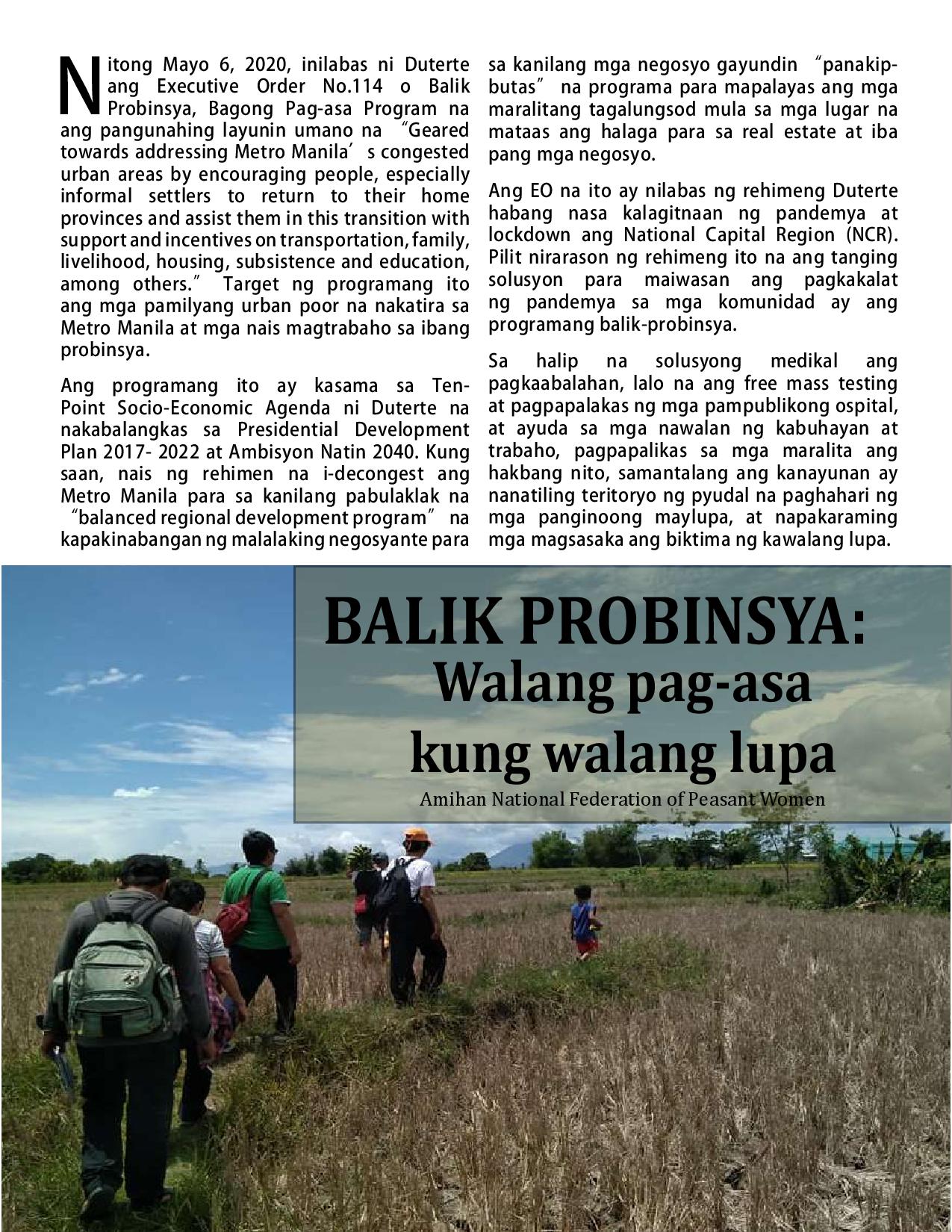The National Federation of Peasant Women (Amihan) slammed the Duterte government’s Balik Probinsya, Bagong Pag-asa Program saying that it offers false hope to the urban poor as the fundamental social crisis await the families returning to the provinces due to the lack of genuine land reform and rural development.
The group, in its published critique on the program entitled, “Balik Probinsya: Walang Pag-asa kung Walang Lupa” said that the promised “balanced regional development program” merely acts as “panakip-butas” to evict the urban poor from the areas with high value for real estate and other investments which will ultimately benefit big business conglomerates.
“The Duterte government is using the pandemic to justify the decongestion of Metro Manila as a part of its measures to flatten the curve when health facilities and equipment as well as other basic services remain insufficient especially in the provinces. The gross neglect of the national government becomes more apparent during calamities such as typhoon, earthquake, volcanic eruption, and the current pandemic ,” Zenaida Soriano, Amihan national chairperson said.
“The program fails to resolve the issues and problems why people in the countryside are taking risks leaving their communities in hope to look for better opportunities in Metro Manila. Isa itong kontra-maralitang programa na basta lamang itinatapon ang ating mga mahihirap na kababayan sa kawalan – kawalan ng hanapbuhay na manipestasyon ng kawalan ng tunay na reporma sa lupa at rural development,” Soriano added.
“As resources including land and fishery remain at the control of landlords and large corporations the participants of the program will be only left to suffer from feudal and semi-feudal exploitations including land grabbing, displacement and low wages and become victims of human rights abuses and militarization of communities,” she said.
The group also pointed out that the policies implemented by the Duterte government such as widespread land-use conversion as a result of its Build, Build, Build program and neoliberal policies in agriculture such as the Rice Liberalization Law pushes people to leave the rural areas.
Amihan cited the rising numbers of ‘sakada’ from Bukidnon and Negros reaching as far as Batangas and Tarlac to work in sugar plantations as a manifestation of lack of sources of livelihood in the rural areas.
“As the program fails to present comprehensive socio-economic program to genuinely help the urban poor settle to the provinces, the urban poor will only become additional victims of a vicious cycle of displacement and neglect,” Soriano ended. ###

